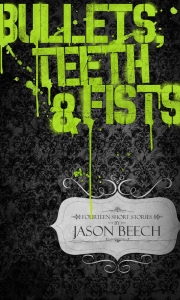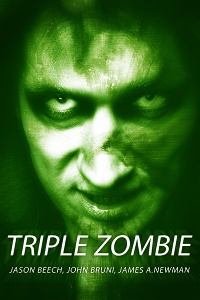I first read Richie Narvaez years ago. His short story collection, Roachkiller, is chock-full of noir corkers, with a little sci-fi spice. His first novel, Hipster Death Rattle is out now to excellent reviews. Mystery Tribune said of it, “Narvaez has some brutal points to make about gentrification … that [give] the text a crackling fission you don’t find in a typical mystery.”
Welcome, Richie.
A friend of mine doesn’t read fiction, paraphrasing Frank Skinner about it all being made-up and he has no time for any of that. What words do you have for such a philistine?
Who is this imbecile? Look, people can read whatever they want, IKEA instructions, Apple contracts, Bibles, nonfiction or fiction, doesn’t matter. It’s the act of reading that’s important, that helps add to the whisper-thin veneer of civilization that just barely keeps us from ripping each other apart. You know, it wasn’t too long ago that idiots used to think of fiction the way we think of video games and opioids now, something that takes us too far away from our real lives, something that spoils real life so much you wouldn’t want to close the pages and ever stop and whiff the roses. And those idiots were right. In any case, if you think that’s bad, wait till we’re all strapped into our VR units, wearing diapers and IV drips.

What must a protagonist have to make you read on?
As long as they’re not awfully stupid, I’ll keep reading. But if the mistakes they make are idiotic and unjustifiably so given the logic of the plot . . . pfffft.
Do you need a likable protagonist?
Ah, this is an old chestnut of a question, and it comes down to semantics, doesn’t it? What do you mean by ‘likable’? Do you mean you have to like the protag enough to have babies with him or trust her to watch your dog? No, certainly not. What we really mean, what’s really important is that we find that protag interesting enough to follow. So you can have someone as awful as Charles Fucking Manson or a Senate Republican, and if you make their dilemma and their journey intriguing enough, it doesn’t matter if they’re the worst human being in the world, we’ll like the story enough to follow that sack of pus to the last page.

Name a great antagonist, in a novel or movie, and what they did for you.
Yeah, I read that J.K. Rowling book — have you heard of it? — and this guy Harry, what a vicious villain, and what a wanker he is to the poor hero, Voldemart. And when Voldemart ultimately dies — spoiler alert! — that’s noir, my friend, that’s noir. Actually, so, I recently read Harry Whittington’s You’ll Die Next, and the antagonist Sammy Malachi disrupts the protagonist’s life for reasons, but it’s a complete cock-up because Malachi’s targeted the wrong guy. On top of that, Malachi is blind, so he literally can’t see that he has the wrong guy. And he’s got an interesting way of speaking, this bizarre cadence. Wonderfully pathetic character. Ergo: Make your antagonists as memorable as your protagonists.
What makes you throw a book out the window?
Bad, boring writing. Cold cliché, not even warmed over, just straight from the fridge, stuff I’ve read a hundred times before and done much better. Pastiche — leave the dead alone already. Undiluted machismo — I read enough of that stuff in junior high.
Do you grit your teeth all the way to the end of a dodgy novel?
Not any more. I mean, I’m much less patient with modern novels. If you haven’t hooked me in those first 10 pages your agent made you spruce up, then your book ends up on the shelf by the mailboxes in the vestibule downstairs, next to the rotating piles of Danielle Steele. On the other hand, with older books, I might give a dodgy-seeming one the benefit of the doubt, for having survived in print, so maybe it’s worth wading in deeper.
What gets you writing? Is it a great novel, maybe? Something you saw on the street or on TV? Something else?
Looking at my bills! Just kidding. I know my writing won’t help those. Ah, a lot of times it’s a bit of news, something on the police blotter, that will stick in my head like burdock. Or it could be a weird person or a comment on the subway. Or long-festering daydreams of bloody murderous revenge on a rival that feature complex kidnap-and-torture scenarios. Or a line from pop song. You know, the usual stuff.

What did you learn about writing from the last book you wrote?
Well, I think I learned to accept how lazy I can be. With my first book, Hipster Death Rattle, I spent about as much time kicking myself for not writing as I did actually writing. I was merciless, and it was not helpful. By the time I got to my next book, which I’ll discuss in the next question, I accepted the way I worked, so I antagonized myself a lot less, and now we’re finally back on speaking terms, me and I. We’re even planning a vacation together. Like that’ll ever happen!
What’s your next book, in 30 words or less?
In Holly Hernandez and the Death of Disco, a high school shamus accuses another student of murder, realizes she’s wrong, tries to clear his name. It’s YA, can you tell?
Where can readers connect with you?
At Shade Bar in Manhattan, Friday nights. Otherwise, I’m all over the place.
https://twitter.com/richie_narvaez
https://www.instagram.com/rnz1000/
https://www.facebook.com/RichieNarvaezAuthor/
You can buy Richie’s work from Amazons US and UK.
City of Forts is FREE for a limited time.



